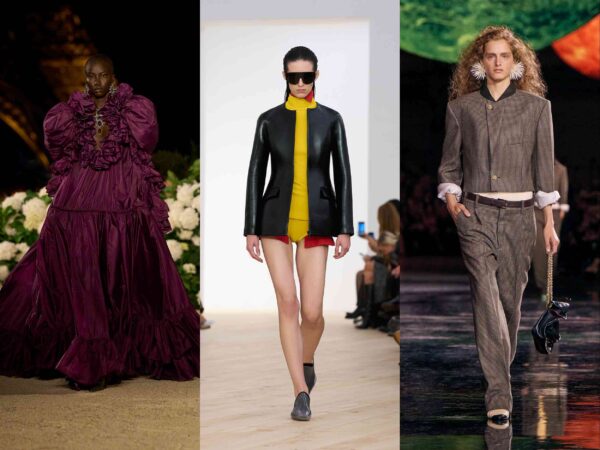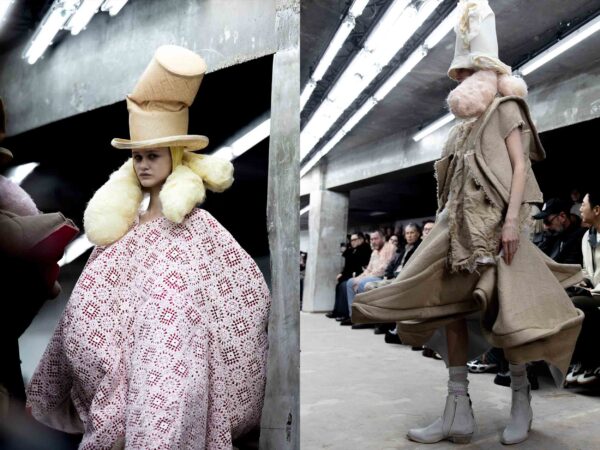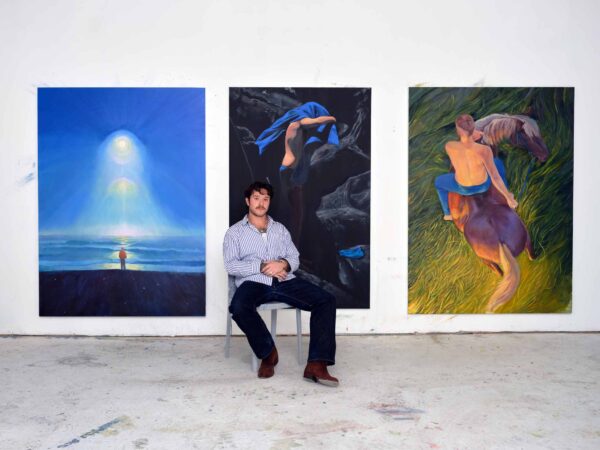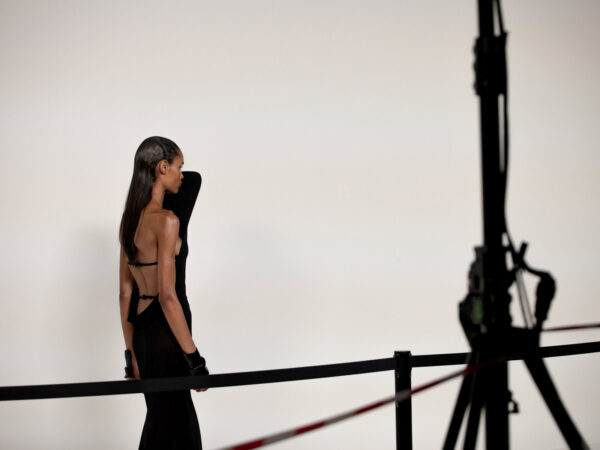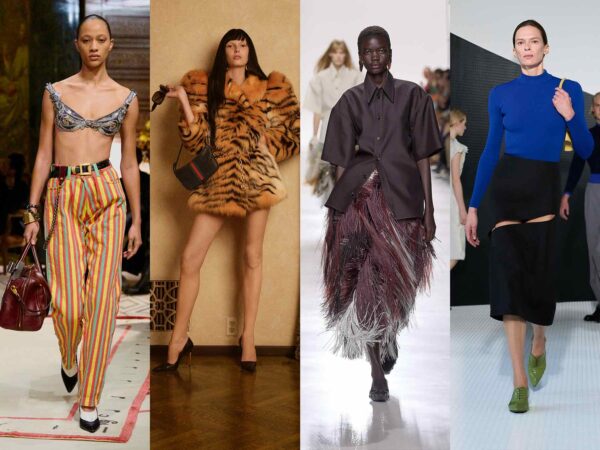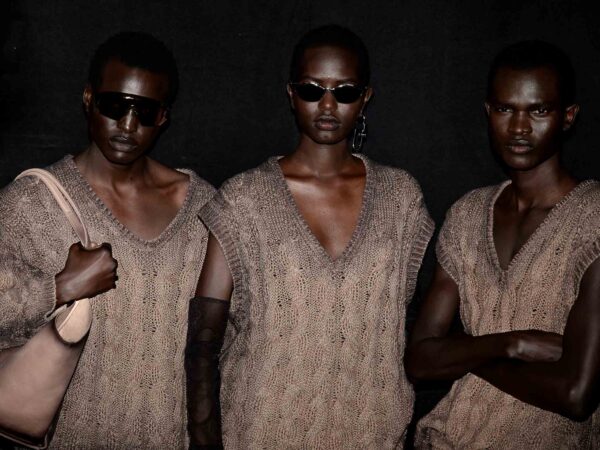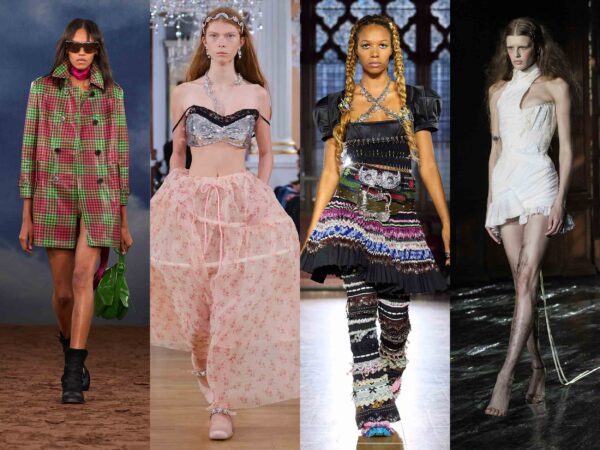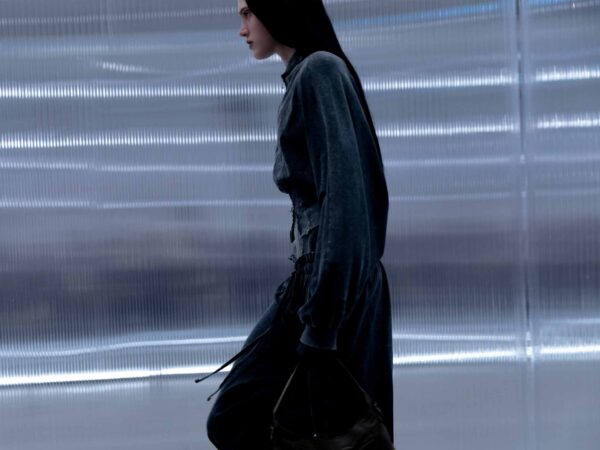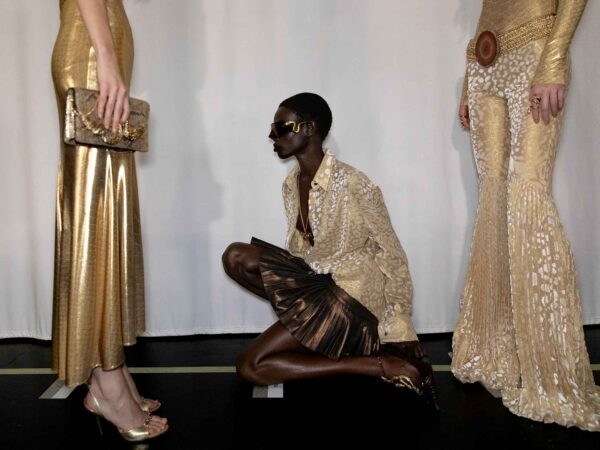
At the intersection of racial identity and technology, Artist prompts us to consider issues of Black labor and visibility within a networked world
American Artist’s work raises critical questions about racial bias in emerging technology and the Black experience in a networked world. In one essay, Artist ponders how a field of cis-white men might affect our perceptions of technology by reinforcing neoliberal white consumption: “As technology becomes compressed in size and time, and its values hardened, the field continues to elude non-white critique.” Artist often works with materials familiar to the white consumer experience, tweaking or diffracting material integrity to re-situate those same objects through the Black ontological experience—and deep inquiries, of power, of race and existence itself abound. Recently, Artist replaced the Whitney’s homepage catalog of art with photographs of plywood—an allusion to outsized capitalist concerns and physical protections of storefronts in the face of recent Black Lives Matter protests. Working in many mediums—an adroit writer, photographer, installation artist and more—Artist often eludes categorization. By diving into many spheres, their medium(s) are often transcended by their mission to “consider black labor and visibility within networked life.”
Alex Hodor-Lee: I came across your work through Rashida [Richardson], after I spoke to her about a law she helped write to curtail NYPD surveillance. I love her. I think she should run for Mayor some day.
American Artist: Yeah, she’s amazing.
Alex: How did you get linked up with her?
American: Rashida and I worked together for Seven on Seven. We were paired together. The way that project works is one artist is paired with one technologist. Those terms can be used loosely but Rashida was the technologist, I was the artist. She works in law around social justice and artificial intelligence, surveillance, things like that. We decided to do this project, where we made a fictional AI assistant called Ally AI. It would basically be an AI assistant that could tell you when you were being problematic or doing something racist. You could ask it ‘hey Ally, is what I’m doing okay?’ We made a satirical commercial for it, and many people said ‘this should be a real thing?’ And that maybe was the most concerning part of it.
Alex: People describe you as operating at the intersection of racial identity and technology. That’s a space that I think will become big in public parlance pretty soon. How did you enter that space?
American: I came to technology through the internet. I’ve always had a practice of sort of engaging with the internet and thought of it as a space to break out of the constructs, hierarchy, and insularity of the normative art world and art economy. So using the internet as a space to work around that or challenge that. Formally, I always thought of my practice as being formed as and growing up alongside the internet and seeing the escalation of it, of social media, and commercial internet use. That has framed how I think of identity within what it means to operate on the internet and to have a critical relationship with technology. Through a lot of conversations online with other artists, who are dealing with racial identity and particularly black racial identity through the internet, I think that’s sort of what began my thinking on that. Reading a lot of theory and understanding how a lot of the art systems and networks we are engaged within are repeating these patterns of racial capitalist violence that I didn’t have a critical relationship to before being in conversation with other artists, who were dealing with the same things.
Alex: What are some of the ways you find the internet to be problematic or identity-reinforcing? And what opportunities does the Internet offer to break from identity?
American: That’s what’s most positive and negative about the internet. It gives people space to reflect on who it is that they are by what is fed back to them. That’s both agency-building, by telling you who you are, what are the commonalities of ideology in you and your peers. But it’s also extremely insular and narrow. I’ve been thinking about this term that was really popular (probably after Trump was elected), but this idea of “filter bubbles.” Everything you see is algorithmically set up to be what you already know and believe so it’s difficult and not really interesting to exit that loop of media or news or whatever. As much as the internet allows people to become more informed about things, I think there’s also apathy that comes with knowing everything that’s wrong. When you know everything that’s wrong with the world, are you going to do anything about it? Or, because you know, do you feel like a good person? I don’t think that inherently access to knowledge leads to some change coming about.
Alex: You ‘looted’ the Whitney. Can you explain how that happened? You replaced all of the art on the Whitney’s home page with photographs of plywood.
American: I had been asked to do something for the Sunrise/Sunset series a while ago. I knew that I wanted to do something that involved redacting the content of The Whitney’s website. By nature this project is very limited in terms of how you can actually interface with what this website is, which was frustrating, but what’s the most oblique interaction I can have with this visual archive? They have a virtual catalog of all of the art they’ve collected. What would it mean to take that away? Within the frame of Black Lives Matter protests and other protests that are happening around the country and thinking about this idea of refusal or redaction that’s been a recurring theme in my practice, I just thought not only to take the images away but to board them up, as a way to mirror what is happening on the physical surface of the museum because they’re boarding it up, but to also represent what it might look like if everything is taken away. Not only is there potential that objects are taken away but what if they were looted in a contemporary sense: what if protesters had taken all of these things away? That’s what I was thinking: that dual idea of looting.
Alex: Your practice of redaction, showing us what isn’t there, highlights what is really there, what is really going on. Contemporary art is often lost in its self-importance or self-reflexivity.
American: It’s also interesting because Sunset/Sunrise has been going on for years but within the normal context of viewing art, it’s a small subset of projects that the Whitney does. Most people don’t really know or think about the fact that they have an internet curatorial project. So, at a moment when you can’t go to museums, suddenly this is the most real way to engage the museum. So this project that was one small part of the museum is suddenly the part.
Alex: Have you been following the controversy around their new project?
American: Yeah. I was definitely upset. I know some people who were told they were in the show. The way it was handled was inconsiderate. It appeared as extremely exploitative. Whether or not that was the intention, many things aligned for it to appear as exploitative. Because they recognized that after people were really upset, they canceled it. That’s more than we can say about the ways in which they’ve handled other controversies in the past, you know? But yeah, I think like every other institution that wants to think about diversity and equity in this corny sense, they need to think about how they can have representation, how can we have space for artists, but they also need to think about how they can cease to cause harm to the communities that they supposedly want to help. It’s one thing to want to represent more artists of a certain background, but you also have to think about not causing harm that the institution is inherently designed to cause in the first place.
Alex: Tell me about Black GUI. I didn’t realize the history of the personal computer in the way you’ve described it. I’m interested in how your mind works. How you arrive at ideas. Do you spend a lot of time reading? How do you identify and probe problems—does it just arrive naturally?
American: I don’t do as much reading as I would like to do.
Alex: The people who read the most usually say that. [Laughs]
American: I don’t know. I don’t read as much as I want to [laughs]. When I do read, I give it my full attention. There’s just a few books or essays. Once they hit me, I’m just thinking about those ideas a lot. And referring to them over and over. At the time I was thinking about Black GUI, I was thinking about how computer interfaces and technology are developed out of the military. Developed out of settler colonialism. It carries all of these values of ‘master-slave,’ of ‘command and control.’ All of these ideas are embedded in [computer technology]. So I was thinking about an alternate technology or a technology that embodies values that were the opposite of that. Values that felt representative of me and my values and my background. One thing I also came across that was helpful was a portion of this essay by Fannie Sosa and Tabita Rezaire. In it, they talk about the interface. ‘Every artist of color knows the quantum field is Black and femme.’ It was this idea of the origin of virtual space being in blackness.
Alex: It seems like language is often your point of entry into inquiry or a project—maybe because that’s easier for viewers to grapple with language rather than visual ideas—we all experience language. Thinking about language, could you explain your project “Sandy Speaks”?
American: That was one of the first projects where I was thinking about how to have a critical conversation around what was happening in the world, along the lines of police brutality against Black people, alongside the internet and having an accessible art experience through the internet. So that was a culmination of my two desires. It was part of a commission by this website, NewHive, A place where artists could publish online art projects. A lot of internet artists that are my age made work on there. I originally made it for that. It was a chatbot you could interact with and ask questions about what happened to Sandra Bland, and ask questions if you are arrested or questions about how to interact with police. Statistics about the prison system and police surveillance systems and things like that. The title of it “Sandy Speaks” comes from these videos that Sandra Bland had made.
Sandra Bland was a young woman who died in Texas after she was pulled over by a cop and taken to jail. Everything that happened to her was covered up by the police. So people believe she was killed by police and that they covered it up. That’s why there was so much controversy around what happened to her.
What was compelling to me was that she has been publishing this series of online videos, where she was talking about police brutality and how to survive amongst police and wanting to teach young Black kids how to interact with police. It’s so interesting to think about the fact that she had been doing that and then this happened to her a little while later. It’s very conspicuous. She had a pretty heavy social media presence. So I thought about what it would mean for her to have continued speaking in social media while she was in prison. I was thinking about the format and medium of Twitter, or something where the words are cascading down the screen in a format similar to Twitter. That’s why I thought about a chatbot. It’s these little pieces of text that you’re seeing and they’re happening live. In that sense it’s also an ode to her, but it’s not one that is a concrete thing. It’s generated every time you talk to it.
Alex: Thinking about the world at large, how have you been absorbing this time in the world—between social unrest and pandemic? How are you feeling?
American: It’s been weird. I mean, it seems so fitting of 2020 that all of these things are happening back to back. For me, I’ve been playing it pretty safe. Not going out a lot. Observing what’s going on. Trying to improve my mental and physical health and not increase the risks that are already present.
Alex: I read that you officially changed your name to American Artist?
American: I was a lot younger. This was in 2013. I was 23. I did it in California. Normally it costs 500 bucks. I applied for a fee waiver so I didn’t have to pay that fee. I went to a clinic where someone helped me through the paperwork. You wait two months for a hearing date when you file and then you have to publish it in a public newspaper, a piece of text that says there’s going to be a hearing, so-and-so is going to change their name. If you have a problem with it, show up to court on that date.
Alex: What an obscure law…
American: Super weird. But I published it in the cheapest newspaper, so I had a hard time even finding a copy of it. After two months you show up to the hearing and they’re like, ‘are you sure you still want to do this?’ They ask you why but they don’t care that I was changing my name to something obscure. It’s like ‘as long as you’re not trying to evade the law or something, we don’t really give a shit why.’ And they granted it.
Alex: What are you up to now?
American: I’m kind of working on an online project. I’ve been thinking about Octavia Butler a lot. I’ve been particularly interested in the fact that she’s from the same place in California that I am. I’ve been thinking about what Pasadena contributed to Octavia Butler being Octavia Butler. I guess I just had a personal fascination with her as an individual but being from that context and thinking that there were all these science institutions [in Pasadena]. Thinking about the migration of African Americans to Pasadena during that time. Thinking about the church. And thinking about what in the context of that experience contributed to who she was.
Alex: I was reading your essay, “Colored Time,” in which you talk about time travel and Black experience. Did you have a fascination with sci-fi growing up?
American: I can’t say I’ve read a ton of sci-fi. But I feel like a nerd. I feel like I have some relationship to it. The way that ideas come about in sci-fi, or speculative fiction in general, really lends itself to how I think about politics and the economy and art. Really being able to shift everyday aspects of life that are considered permanent, or that’s-just-the-way-it-is, you can entirely switch them around in the case of sci-fi. In [“Colored Time”] it was helpful to think about time in this sort of more complex way. People from different backgrounds experience time in a different way. I guess using sci-fi as a way to get to this conversation around social equity.
Alex: Do you take solace in, or do you find it frustrating that you’ve been working in this space and sounding these alarms for a while and now people are coming around to understanding these concepts you’ve long been exploring?
American: I was really disturbed—but I wasn’t surprised. Right after George Floyd died people were boosting art that dealt with police brutality. I had recently made work about that and people were boosting it and were like ‘check out this artist and stuff.’ That bothered me. To be relevant because such a horrible thing is happening. That’s really sad. I’m glad y’all are recognizing this and recognizing how my art is communicating this. But it’s just shitty for it to have to come to this for that to happen.









